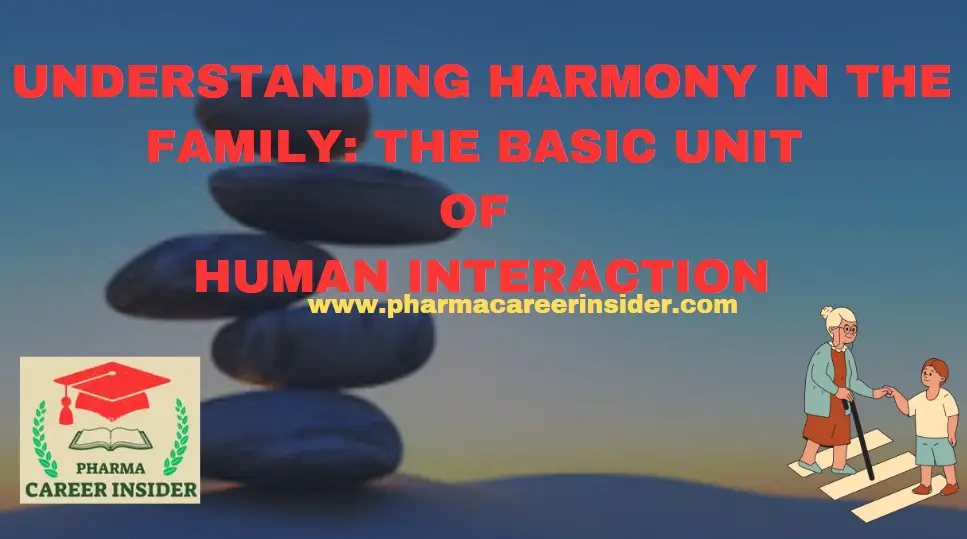Harmony in the family and society refers to peaceful coexistence and individual cooperation. In human-human relationships, harmony is achieved through mutual respect, trust, and understanding. This involves recognizing and valuing differences, effective communication, and resolving conflicts positively and constructively. Promoting harmony in our relationships can create a supportive and fulfilling environment where everyone feels valued and heard.
The basic unit of human interaction is considered to be a two-person relationship. It refers to the smallest social unit in which two individuals interact with each other, shaping and being shaped by their interactions. This interaction can be in the form of communication, cooperation, or conflict, and it forms the foundation for larger social structures like families, communities, and societies. The quality of these two-person relationships often affects individuals’ overall well-being and happiness within a society.
Harmony in the family is important for several reasons:
1. Provides a stable and secure environment: A harmonious family environment gives its members a sense of security, comfort, and stability.
2. Promotes mental and emotional well-being: A supportive and loving family environment can help improve its members’ mental and emotional well-being, reducing stress and promoting happiness.
3. Facilitates communication and understanding: When there is harmony in the family, members are more likely to communicate effectively, leading to better understanding and reduced conflicts.
4. Encourages healthy relationships: A harmonious family environment can help foster
healthy relationships among its members, promoting love, respect, and trust.
5. Supports personal growth and development: A supportive family environment can provide the support needed for personal growth and development, helping individuals reach their full potential.



